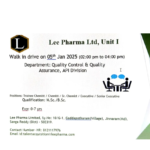12 Most Commonly used Medicines

https://healthcareguru.services/dengvaxia-dengue-vaccine-drug/
Introduction
In the world of medicine, there are a handful of commonly used drugs that have become household names due to their effectiveness in treating various conditions. From relieving pain to managing chronic illnesses, these medicines play a crucial role in maintaining our health and well-being. This article will delve into the 12 most commonly used medicines, their uses, benefits, and potential side effects.
Advil (Ibuprofen)
Advil, also known by its generic name ibuprofen, is a nonsteroidal anti-inflammatory drug (NSAID) commonly used to alleviate pain, reduce inflammation, and lower fever. It works by inhibiting enzymes that cause inflammation and pain. This makes Advil an effective option for conditions such as headaches, muscle aches, menstrual cramps, and arthritis.
Tylenol (Acetaminophen)
Tylenol, or acetaminophen, is a widely recognized over-the-counter pain reliever and fever reducer. Unlike NSAIDs, Tylenol doesn’t have strong anti-inflammatory effects. It’s often used for mild to moderate pain, such as that caused by headaches, minor aches, and dental pain. It’s important to use Tylenol as directed, as excessive use can lead to liver damage.
Aspirin (Salicylic Acid)
Aspirin, scientifically known as acetylsalicylic acid, is another NSAID that serves multiple purposes. Besides pain relief and fever reduction, it’s also used as an antiplatelet agent, which means it helps prevent blood clot formation. This makes aspirin an essential medication for individuals at risk of heart attacks or strokes.

Zantac (Ranitidine)
Zantac, with its active ingredient ranitidine, falls under the category of H2 blockers. These drugs reduce the production of stomach acid and are often used to treat conditions like acid reflux, gastroesophageal reflux disease (GERD), and peptic ulcers. However, it’s important to note that Zantac has been associated with certain safety concerns, and its use has been restricted in some regions.
Benadryl (Diphenhydramine)
Benadryl, containing diphenhydramine, is an antihistamine commonly used to relieve allergy symptoms such as sneezing, itching, and runny nose. It’s also known for its sedative effects and is used to alleviate symptoms of insomnia and motion sickness. While effective, it can cause drowsiness and should be used cautiously.
Nexium (Esomeprazole)
Nexium, also called esomeprazole, is a proton pump inhibitor (PPI) used to reduce stomach acid production. It’s prescribed for conditions like GERD, ulcers, and inflammation of the esophagus. By decreasing stomach acid, Nexium helps alleviate symptoms and promote healing.
Lipitor (Atorvastatin)
Lipitor, or atorvastatin, falls under the category of statins, which are used to lower cholesterol levels in the blood. High cholesterol is a significant risk factor for heart disease, and drugs like Lipitor help reduce this risk by inhibiting the production of cholesterol in the liver.
Prozac (Fluoxetine)
Prozac, known by its generic name fluoxetine, is a selective serotonin reuptake inhibitor (SSRI) used to treat depression, anxiety, and certain eating disorders. It works by increasing the levels of serotonin in the brain, which plays a key role in regulating mood and emotions.
Ventolin (Albuterol)
Ventolin, containing albuterol, is a bronchodilator that relaxes the muscles in the airways. It’s commonly used to provide quick relief for conditions like asthma and chronic obstructive pulmonary disease (COPD). Ventolin’s rapid action helps improve breathing by opening up the air passages.
Synthroid (Levothyroxine)
Synthroid, with its active ingredient levothyroxine, is a synthetic form of the thyroid hormone thyroxine. It’s used to treat hypothyroidism, a condition in which the thyroid gland doesn’t produce enough hormones. Synthroid helps regulate metabolism and energy levels in the body.

Metformin
Metformin is an oral medication commonly prescribed to manage type 2 diabetes. It works by reducing glucose production in the liver and improving insulin sensitivity in the body. Additionally, metformin may offer benefits beyond diabetes management, such as potential weight loss and reduced heart disease risk.
Frequently Asked Questions (FAQs)
Q: Are these medicines available without a prescription?
Yes, some of these medicines are available over-the-counter (OTC), while others require a prescription from a healthcare provider.
Q: What are the potential side effects of using these medicines?
Side effects vary depending on the medicine but can include gastrointestinal issues, allergic reactions, drowsiness, and more. Consult a healthcare professional for personalized guidance.
Q: Can I take these medicines while pregnant?
It’s important to consult a healthcare provider before taking any medication during pregnancy, as some medicines may pose risks to the developing fetus.
Q: Are there any interactions between these medicines and other drugs?
Yes, certain medicines can interact with others, potentially affecting their effectiveness or causing adverse effects. Always inform your healthcare provider about all the medications you’re taking.
Q: Can I give these medicines to children?
Dosages for children may differ from those for adults. Follow healthcare provider recommendations and use appropriate pediatric formulations if available.
Q: What should I do if I miss a dose of my medication?
If you miss a dose, follow the instructions provided with the medication. If unsure, consult your healthcare provider or pharmacist.
Q: How long should I continue taking these medicines?
The duration of medication use varies. Some may be short-term, while others may require long-term management. Follow your healthcare provider’s advice.
Q: Are there any dietary restrictions while using these medicines?
Certain medicines, like statins, may require dietary adjustments. It’s best to consult a healthcare provider or pharmacist for specific guidance.
Q: Can these medicines be addictive?
Most of the medicines listed here are not addictive when used as directed. However, some, like opioids, can be habit-forming and should be used with caution.
Q: What should I do if I experience severe side effects?
If you experience severe or unexpected side effects, stop using the medication and seek medical attention immediately.

Conclusion
In the realm of healthcare, these 12 commonly used medicines have become integral parts of our lives. From relieving pain and discomfort to managing chronic conditions, they serve diverse purposes and contribute to our overall well-being. Remember, while these medicines offer valuable benefits, it’s crucial to use them responsibly and under the guidance of healthcare professionals.
https://healthcareguru.services
भगवद गीता: आध्यात्मिक ज्ञान का अद्भुत संग्रह
विटामिन B12 की कमी Vitamin B12 Deficiency: Symptoms, Causes & Treatment









